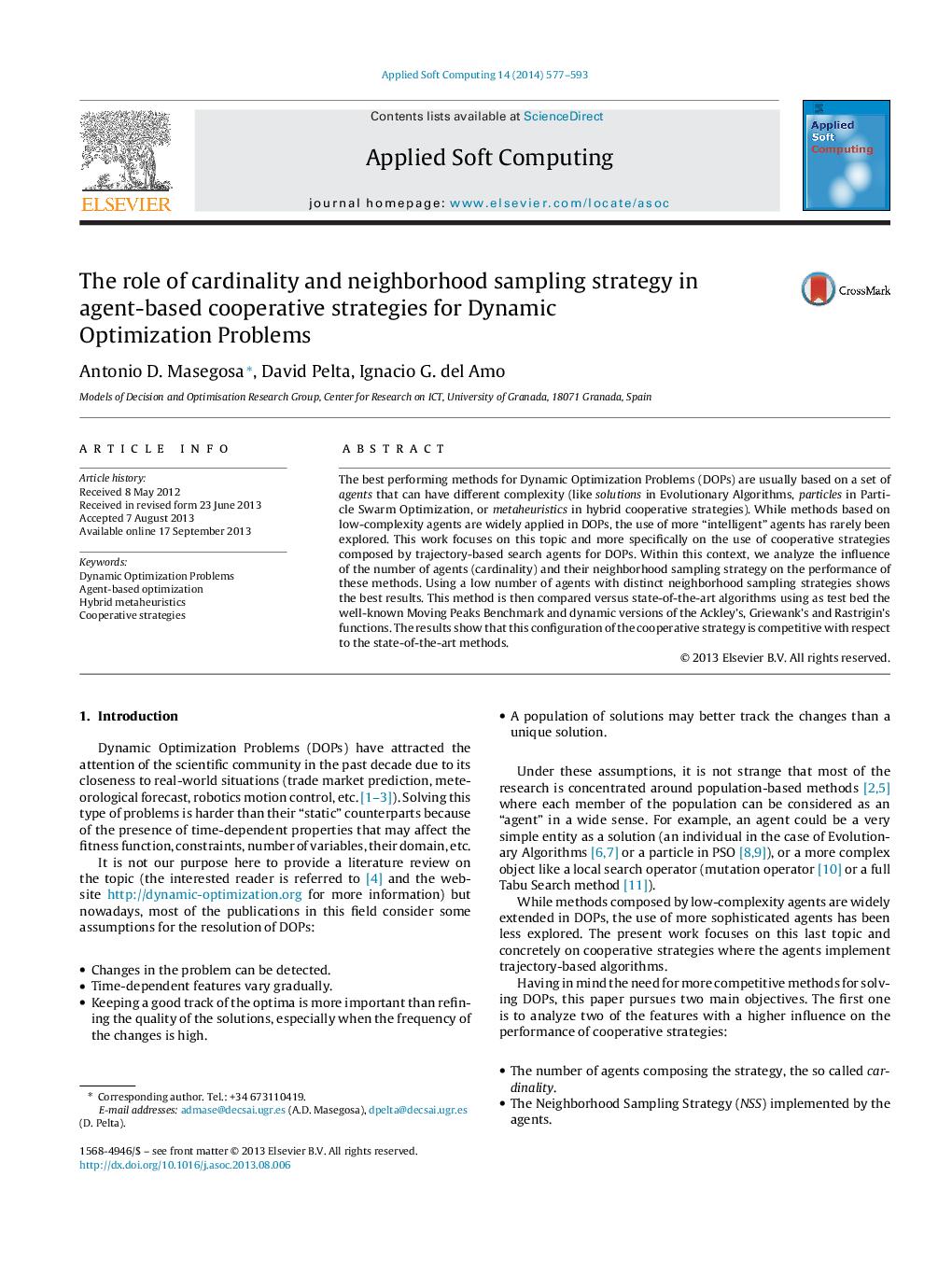| Article ID | Journal | Published Year | Pages | File Type |
|---|---|---|---|---|
| 495766 | Applied Soft Computing | 2014 | 17 Pages |
•While low-complexity agent-based solvers are common in DOPs, more “intelligent” agents have rarely been studied.•This work focuses on the use of cooperative strategies composed by trajectory based search agents for DOPs.•We analyze the influence of the number of agents (cardinality) and the neighborhood sampling strategy (NSS).•A low cardinality and a heterogeneous NSS composition leads to better and more robust performance, respectively.•The best performing cardinality-composition pair improves significantly the state-of-the-art algorithms considered.
The best performing methods for Dynamic Optimization Problems (DOPs) are usually based on a set of agents that can have different complexity (like solutions in Evolutionary Algorithms, particles in Particle Swarm Optimization, or metaheuristics in hybrid cooperative strategies). While methods based on low-complexity agents are widely applied in DOPs, the use of more “intelligent” agents has rarely been explored. This work focuses on this topic and more specifically on the use of cooperative strategies composed by trajectory-based search agents for DOPs. Within this context, we analyze the influence of the number of agents (cardinality) and their neighborhood sampling strategy on the performance of these methods. Using a low number of agents with distinct neighborhood sampling strategies shows the best results. This method is then compared versus state-of-the-art algorithms using as test bed the well-known Moving Peaks Benchmark and dynamic versions of the Ackley's, Griewank's and Rastrigin's functions. The results show that this configuration of the cooperative strategy is competitive with respect to the state-of-the-art methods.
Graphical abstractFigure optionsDownload full-size imageDownload as PowerPoint slide
